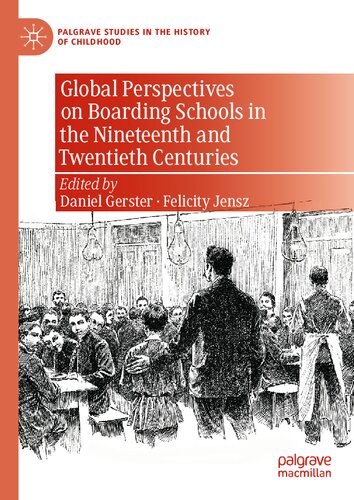

Most ebook files are in PDF format, so you can easily read them using various software such as Foxit Reader or directly on the Google Chrome browser.
Some ebook files are released by publishers in other formats such as .awz, .mobi, .epub, .fb2, etc. You may need to install specific software to read these formats on mobile/PC, such as Calibre.
Please read the tutorial at this link: https://ebookbell.com/faq
We offer FREE conversion to the popular formats you request; however, this may take some time. Therefore, right after payment, please email us, and we will try to provide the service as quickly as possible.
For some exceptional file formats or broken links (if any), please refrain from opening any disputes. Instead, email us first, and we will try to assist within a maximum of 6 hours.
EbookBell Team

5.0
30 reviewsIn the nineteenth and twentieth centuries, thousands of pupils attended boarding schools in various places across the globe. Their experiences were vastly different, yet they all had in common that they were separated from their families and childhood friends for a period of time in order to sleep, eat, learn and move within the limited spatial sites of the boarding school. This book frames these ‘boarding schools’ as a global and transcultural phenomenon that is part of larger political and social developments of European imperialism, the Cold War, and independence movements. Drawing together case studies from colonial South Africa, colonial India, Dutch Indonesia, early twentieth-century Nigeria, Fascist Spain, Ghana, Nazi Germany, nineteenth-century Ireland, North America and the Soviet Union, this edited collection examines the ways in which boarding schools extracted pupils from their original social background in order to train, mold and shape them so that they could fit into the perceived position in broader society. The book makes the broader argument that framing boarding schools as a global phenomenon is imperative for a deepened understanding of the global and transnational networks that linked people as well as ideas and practices of education and childhood in the nineteenth and twentieth centuries.